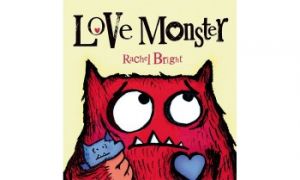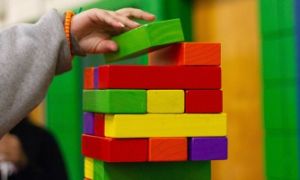In the fast-paced world, leadership isn’t just about compliance or curriculum; it’s about connection. One of the most powerful, yet often overlooked, tools in a leader’s toolkit is the humble check-in ritual. These moments of intentional pause can transform team dynamics, foster psychological safety, and embed a culture of care into the everyday rhythm of a service.
What Are Check-In Rituals?
Check-in rituals are short, structured, or semi-structured moments where educators are invited to share how they’re feeling, what they need, or what they’re noticing. They can be verbal, visual, written, or symbolic and they’re most effective when they’re consistent, emotionally intelligent, and culturally responsive.
Why They Matter
- Build Emotional Safety: Regular check-ins signal that well-being matters. They normalize vulnerability and reduce isolation.
- Strengthen Team Culture: Rituals create shared language and rhythm, anchoring the team in values of empathy and mutual support.
- Support Reflective Practice: When educators feel seen and heard, they’re more likely to engage in meaningful reflection and continuous improvement.
- Prevent Burnout: Early signals of stress or fatigue can be caught and addressed before they escalate.
Practical Formats for Check-Ins
Here are a few adaptable formats leaders can prototype:
| Format | Description | Best Used When |
|---|---|---|
| Emoji Board | Educators place an emoji sticker or magnet to reflect their mood | Quick visual check-in at start of shift |
| Voice Bubble Cards | Cards with prompts like “Today I feel…” or “I need…” | Team meetings or reflective sessions |
| Cultural Greeting Rituals | Use greetings from diverse languages or traditions to open meetings | Embedding cultural responsiveness |
| Pulse Check Journals | A shared notebook where educators jot down one word or thought | Weekly reflections or planning |
| Circle Check-In | Verbal round where each person shares one highlight or challenge | Staff meetings or end-of-week wrap-ups |
Designing Your Own Rituals
When designing check-in rituals, consider:
- Time & Flow: Keep it short and predictable. 3–5 minutes is often enough.
- Symbolism: Use colors, motifs, or language that reflect your service’s identity.
- Accessibility: Ensure all educators can participate—consider language, neurodiversity, and emotional safety.
- Follow-Up: Rituals should lead to action or acknowledgment. If someone shares a need, respond with care.
Leadership Tips
- Model vulnerability: Share your own check-in authentically.
- Avoid over-formalizing: Keep it warm, not clinical.
- Use data wisely: Track themes over time to inform well-being strategies.
- Celebrate growth: Use check-ins to notice and affirm team strengths.
Further Reading
Educational Leader Guide: How to Develop Leadership Skills
A Step-by-Step Guide To Constructive Feedback
Educational Leader Guide: Mentoring Educators—Techniques
Educational Leader Guide: Empowering Educator Well-Being
A Guide For Educational Leaders In Early Childhood Settings
Qualities Of An Educational Leader
EYLF "Look-Fors" Observation Guide For Educational Leaders







 In Norway and most other Scandinavian countries, children nap in the outdoors. According, to research outdoor sleeping not only promotes better daytime sleeping, but it
In Norway and most other Scandinavian countries, children nap in the outdoors. According, to research outdoor sleeping not only promotes better daytime sleeping, but it Feel Good Feb is dedicated to saying thanks, expressing gratitude, and promoting good deeds and random acts of kindness.
Feel Good Feb is dedicated to saying thanks, expressing gratitude, and promoting good deeds and random acts of kindness.
 Here’s a comprehensive Mobile Phone and Smart Watch Policy tailored for early childhood education and care (ECEC) services in Australia, aligned with the latest 2025
Here’s a comprehensive Mobile Phone and Smart Watch Policy tailored for early childhood education and care (ECEC) services in Australia, aligned with the latest 2025 Across the early childhood education and care sector, educators are sounding the alarm: current staffing ratios are insufficient to deliver safe, meaningful, and developmentally appropriate
Across the early childhood education and care sector, educators are sounding the alarm: current staffing ratios are insufficient to deliver safe, meaningful, and developmentally appropriate Thanks to the new National Model Code and upcoming regulatory changes under the National Quality Framework (NQF), early childhood services across Australia must now implement
Thanks to the new National Model Code and upcoming regulatory changes under the National Quality Framework (NQF), early childhood services across Australia must now implement In the quiet hum of a weekday morning, something felt off. Preschool doors opened, but classrooms remained silent. No greetings. No redirection. No educators. And
In the quiet hum of a weekday morning, something felt off. Preschool doors opened, but classrooms remained silent. No greetings. No redirection. No educators. And A: In early childhood education and care (ECEC) settings across Australia, mobile phone use by educators is now subject to strict national reforms aimed at
A: In early childhood education and care (ECEC) settings across Australia, mobile phone use by educators is now subject to strict national reforms aimed at The end of the year is a busy and emotional time in early childhood services. Many services close for a short period over Christmas, and
The end of the year is a busy and emotional time in early childhood services. Many services close for a short period over Christmas, and In early childhood education and care, child safety is not just a number—it’s a practice. While educator-to-child ratios are essential, they are only one part
In early childhood education and care, child safety is not just a number—it’s a practice. While educator-to-child ratios are essential, they are only one part Being an educator is both rewarding and demanding. Between planning, documentation, room management, and supporting children’s wellbeing, the workload can feel overwhelming. That’s why practical
Being an educator is both rewarding and demanding. Between planning, documentation, room management, and supporting children’s wellbeing, the workload can feel overwhelming. That’s why practical


